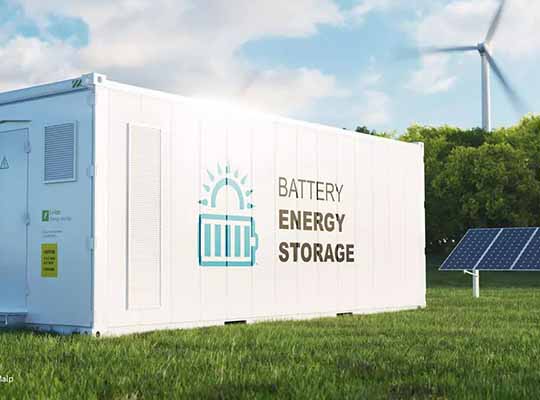The battery energy storage system market is expected to reach USD 17.5 billion by 2028 from USD 5.4 billion in 2023, at a CAGR of 26.4 % during the 2023–2028 period according to a new report by MarketsandMarkets™. The significant growth factors associated with the battery energy storage system market is the increasing deployment of renewable energy sources. Additionally, the growth of electric vehicles (EVs) is driving the need for efficient and reliable charging infrastructure, where battery energy storage systems can play a significant role in managing peak loads and balancing the grid. Furthermore, advancements in battery technology, cost reduction, and favorable government policies and incentives are also contributing to the market’s growth by making battery energy storage systems more accessible and economically viable for various applications.
Battery Energy Storage Market Report Scope:
|
Report Coverage |
Details |
|
Market Revenue in 2023 |
$5.4 billion |
|
Estimated Value by 2028 |
$17.5 billion |
|
Growth Rate |
Poised to grow at a CAGR of 26.4% |
|
Market Size Available for |
2019–2028 |
|
Forecast Period |
2023–2028 |
|
Forecast Units |
Value (USD Million/Billion) |
|
Report Coverage |
Revenue Forecast, Competitive Landscape, Growth Factors, and Trends |
|
Segments Covered |
By Element, Battery Type, Connection Type, Ownership, Energy Capacity and Region |
|
Geographies Covered |
North America, Europe, Asia Pacific, and Rest of World |
|
Key Market Challenge |
Difficulties pertaining to installation of battery energy storage systems in remote and isolated locations |
|
Key Market Opportunities |
Reduction in prices of lithium-ion batteries |
|
Key Market Drivers |
Accelerated deployment of grid energy storage systems in ongoing grid modernization on projects |
Battery element segment is expected to account for the largest share of the battery energy storage system market during the forecast period.
The battery energy storage system constitutes components such as a battery, battery management system, energy management system, monitoring and control system, and power conversion system. The battery elements used in the battery energy storage system are in the form of modules and racks. The battery element alone constitutes 60% of the total battery energy storage system. It is the major element, where the functioning is regularized by hardware and software, which increases its efficiency. Mostly used battery types in battery energy storage systems are lithium-ion and advanced lead-acid batteries.
Utility application is projected to account for significant share of battery energy storage system market during the forecast period.
Battery energy storage systems play a crucial role in grid stabilization and peak load management, which are essential for maintaining a stable and reliable power supply. They can respond quickly to fluctuations in power supply and demand, regulating frequency and voltage to ensure grid stability. The need to fulfill the requirement of peak electricity demands is the major factor contributing to the growth of the market for utilities.
Asia Pacific is expected to register the highest CAGR during the forecast period.
Asia Pacific rapid economic growth, urbanization, and industrialization have resulted in higher energy consumption. This increased demand for energy, along with the need for reliable and sustainable power supply, has driven the adoption of battery energy storage industry. The use of residential energy storage technology will enable to increase access to electricity for these remote and island communities in the region. Energy storage investments are expected to increase substantially within the region as the governments in growing economies are making new policies to improve the reliability and quality of the power distribution facilities to the residential customers. The growth of the market in the region is driven by several factors, including the increasing demand for renewable energy, growing concerns about climate change, improvements in battery technology, and government policies and regulations.
The report profiles key players in battery energy storage companies such as BYD Company Limited, SAMSUNG SDI Co., Ltd., LG Energy Solutions Co., Ltd., and Panasonic Corporation.













